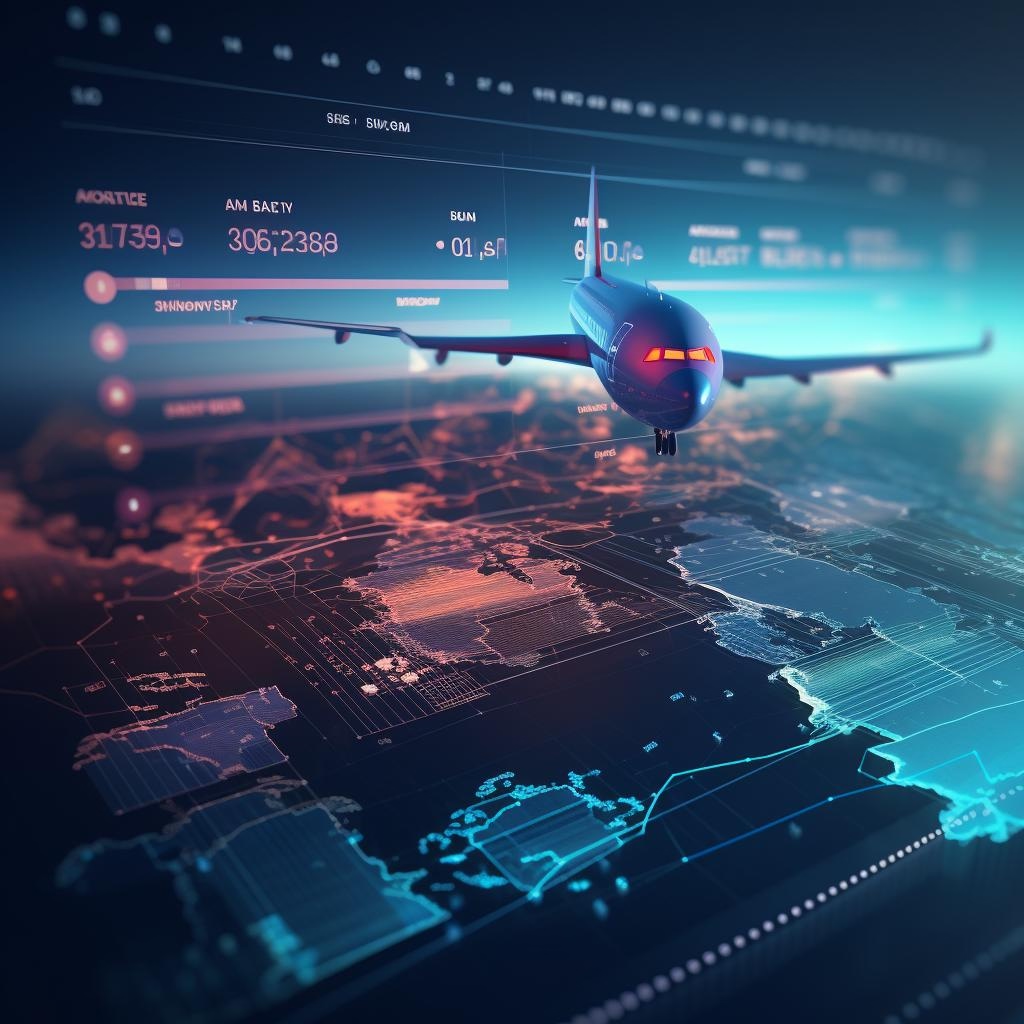
بريد إلكتروني أذكى، وأعمال أسرع. وسم وتحليل والرد تلقائيًا على طلبات العروض، وعروض الأسعار، والطلبات، والمزيد — فورًا.
الرائج الآن
The Impact of AI on Aviation Analytics

The Expanding Role of AI in Aviation Analytics
Artificial Intelligence (AI) is fundamentally transforming the aviation industry, ushering in a new era characterized by enhanced efficiency, improved safety, and a stronger focus on customer-centric operations. Airlines are increasingly leveraging AI-powered analytics to revolutionize key areas such as maintenance, flight operations, and revenue management. This transformation is occurring despite persistent challenges related to the complexity of data and the demands of regulatory compliance.
From Traditional Methods to Advanced Analytics
The aviation sector has historically depended on manual processes and rudimentary data analysis for decision-making. The advent of big data and AI has shifted this paradigm, enabling the industry to adopt advanced analytics that provide real-time insights and facilitate proactive strategies. This transition marks a significant evolution from reactive responses to predictive and prescriptive analytics, fundamentally reshaping airline operations.
Central to this shift is the integration of AI with big data and cloud computing technologies. Airlines now gather extensive datasets from a variety of sources, including sensors embedded in aircraft, customer interactions, and operational systems. Cloud platforms offer the necessary scalability and computational power to process this vast information, allowing AI algorithms to support more informed and timely decision-making.
Enhancing Reliability Through Predictive Maintenance
Predictive maintenance powered by AI has become a critical component in ensuring aircraft reliability. By analyzing sensor data alongside historical maintenance records, AI models can forecast potential component failures before they occur. Industry estimates suggest that this proactive approach can reduce unscheduled maintenance by up to 30% and increase aircraft availability by approximately 20%.
Real-time monitoring systems, augmented by AI, continuously evaluate the health of aircraft during operations. These systems provide maintenance teams with timely alerts and actionable insights, enabling more efficient interventions, reducing costs, and enhancing overall operational readiness.
Optimizing Flight Operations and Sustainability
AI algorithms play a vital role in optimizing flight routes and improving fuel efficiency. By incorporating variables such as weather conditions, air traffic, and aircraft performance, AI helps determine the most efficient flight paths. This optimization not only results in significant fuel savings but also contributes to reducing carbon emissions, aligning with broader sustainability objectives.
Beyond route optimization, AI facilitates dynamic scheduling and resource allocation. Airlines can adjust flight schedules in response to real-time disruptions, thereby optimizing the deployment of aircraft and crew. This flexibility enhances punctuality and improves the overall passenger experience.
Revolutionizing Revenue Management
The application of AI has also transformed revenue management through dynamic pricing strategies. By analyzing market demand, booking patterns, and competitor pricing, AI models adjust ticket prices in real time to maximize revenue. This capability enables airlines to implement personalized pricing tailored to diverse customer segments.
Furthermore, AI improves inventory management by accurately forecasting demand and optimizing seat allocation. This precision helps reduce instances of overbooking and underutilization, thereby increasing profitability and enhancing customer satisfaction.
Market Growth Amidst Challenges
The aviation analytics market is experiencing significant growth as airlines and service providers compete to integrate advanced AI capabilities. This competitive environment is driving innovation across the sector. However, the widespread adoption of AI faces notable challenges, including the complexity of managing large datasets, integration difficulties, and the necessity to adhere to stringent regulatory standards.
Future Prospects
Despite these obstacles, the role of AI in aviation analytics is poised to expand further. As technological advancements continue and regulatory frameworks adapt, AI is expected to play an increasingly central role in driving operational excellence, sustainability, and profitability within the aviation industry.